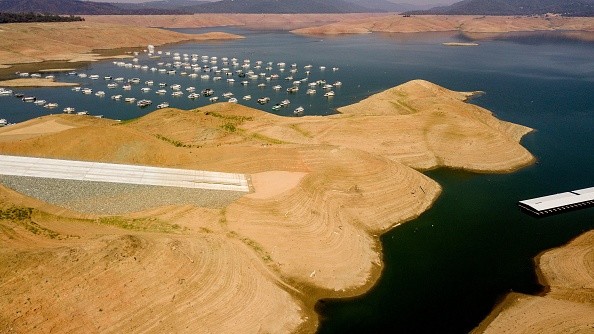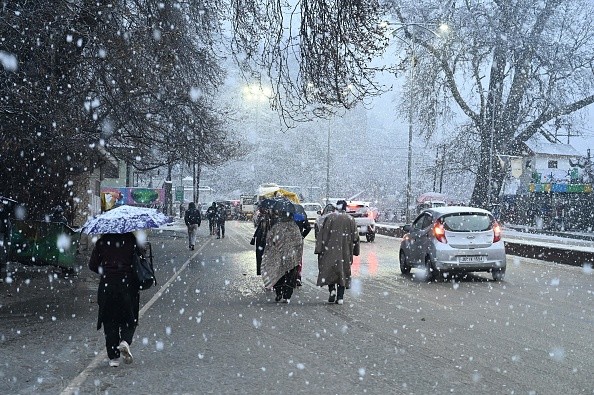In spite of record rainfall and snowfall, California is still experiencing drought. Moderate-to-extreme drought conditions persist across much of California, except the Bay Area.
The Sierra Nevada received nearly 18 feet of snow in a single month, but water levels in California are at a crisis point and need to be replenished. While scientists try to figure out when the drought will come to an end, locals continue to conserve.

Snowfall in Sierra Nevada Mountains
When California's water year began on October 1st, atmospheric rivers quickly brought torrential rainfall to the Bay Area. December saw a record-breaking 18 feet of snowfall in the Sierra Nevada mountains alone, according to Accuweather.
According to lead scientist Dr. Andrew Schwartz at the Central Sierra Snow Lab at the University of California in Berkeley, who has been measuring the snowfall daily throughout Sierra Nevada, California saw a record-breaking amount of snowfall in December with 214 inches, shattering the previous record of 179 inches, set in 1970,
But the torrential downpour didn't end there. For a brief period in early December, the West Coast received the equivalent of one month's worth of rain. As a result of the tremendous rain, some areas of California received as much as 9.89 inches of rain in just 36 hours.
Even moderate flooding was reported in the North Bay, where several streams and creeks swelled.
Scientists Worried About California's Drought Condition
AccuWeather National Reporter Bill Wadell spoke with AccuWeather's National Meteorologist Steve Schwartz, who expressed concern about a repeat of November's high temperatures and low precipitation, which could cause the snowpack to melt away and leave the region without the full amount of snow it needs.
Water resources officials in California report that the snowpack and snow water content are significantly above average for this time of year. By April 1, the snowpack in the Sierra Nevada was 148% over average, with the southern Sierra Nevada at 157% above average.
In spite of this, scientists are cautiously hopeful about the season and are expecting for further snow and cold temperatures to ensure that the snowpack remains during the winter months
"These kind of extreme drought periods are not going to get less frequent. So even if we wind up with these incredible precipitation events like we've had recently, that doesn't mean they're going to relieve the drought," said Schwartz.

Water Conservation Due to Drought
Reservoir levels have been steadily rising thanks to the weather. The hydropower plant at Lake Oroville was reopened earlier this month after being shut down in August due to historically low reservoir levels.
In an effort to estimate runoff, the California Department of Water Resources has been putting data into various models. According to Sean De Guzman, manager of the California Department of Water Resources Snow Surveys, being able to predict particular amounts of runoff is an important component in producing a water supply prediction.
"Next year might be an even more severe drought, which means we need as much of our water resources as we can have stored at that point," Schwartz said.
Officials in the West are urging households and businesses to continue conserving water this winter so that more can be available when it's most needed during summer.
Related Article : Study Shows Drought Worsen Heatwaves, Making the Event Less Deadly
For more news, update about droughts and similar topics don't forget to follow Nature World News!
© 2025 NatureWorldNews.com All rights reserved. Do not reproduce without permission.





